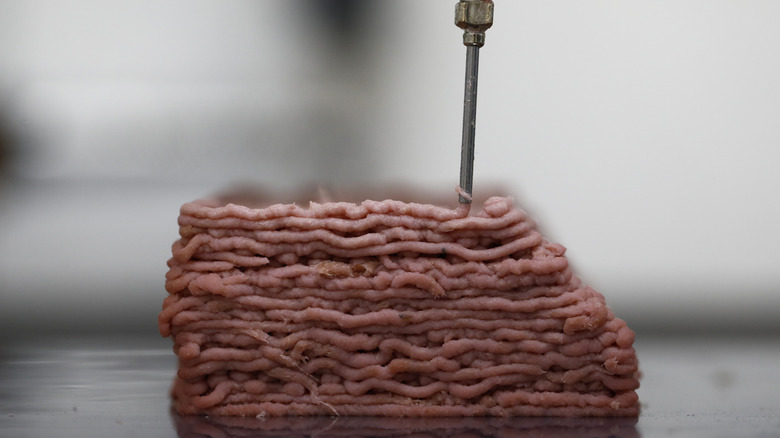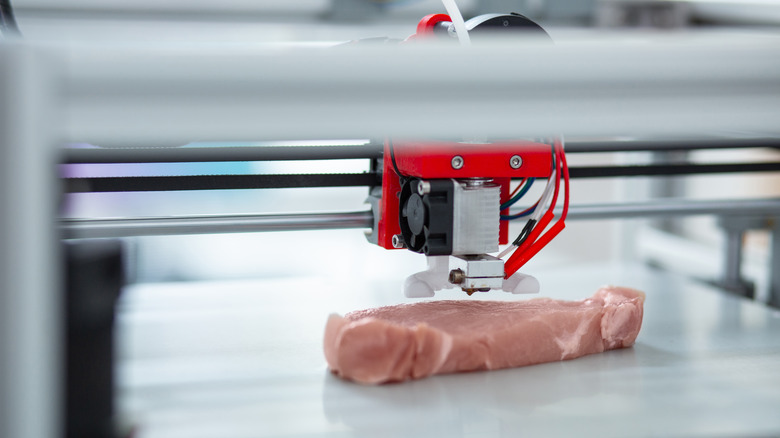TikTok Is Unimpressed By This 3D Printed Meat
Yesterday, TikTok surged with comments asking why vegans care so much about replicating the very meat they've chosen not to eat. Surely, they argue, this means that actual meat is superior.
The source of this self-satisfaction was a video uploaded by NowThis that showcased a 3D printer producing a slab of something that looks an awful lot like meat, but is actually made from plant fibers. "By mimicking the way animal meat is formed, it means the texture is pretty similar," they explain.
"Tbh," one of the more polite commenters admitted, "I don't understand the idea of this, you are vegan to not eat animals, but you eat artificial meat. So you still really want to eat animals right?" "For people who hate meat, vegans really seem to like eating stuff that looks like it," another noted.
However, the point of plant-based meats is not just to provide an easy transition to vegetarianism or veganism. Rather, it is one solution to our need to reduce meat consumption, which according to a study The Guardian shared back in 2018, is essential to mitigate the effects of climate change on the environment. Between water consumption, deforestation, grazing, and all the environmental factors that go into producing animal feed, raising meat is a resource-heavy industry.
No, 3D printed meat is not made from plastic
Besides snide comments about vegans, the biggest issue people seemed to have with the idea of 3D printed meat was that they thought it was plastic. "Why would I eat plastic?" one asked. Presumably, this is because people predominantly associate 3D printing with the creation of plastic objects.
That's not the case here. As 3D Natives writes, the technology behind 3D printed meat uses protein powder from peas and seaweed, but weaves them together to resemble the tissues of meat. "The difficulty lies in reorganising the nanofibers from vegetables' proteins to make them seem like animal proteins," Giuseppe Scionti, the founder of the Barcelona-based startup Novameat, told them. "First you have to study the histology of the animal tissue, how the muscle fibres are organised, and then you have to try to replicate that with plant-based ingredients that have not been genetically modified."
Even if that appears like a lot of conceptual information, the point is that 3D printed meat is plant-based, not plastic, and it's an innovation you should keep your eye on.

